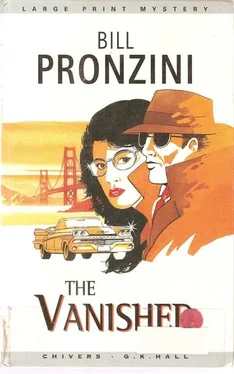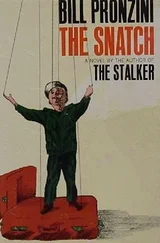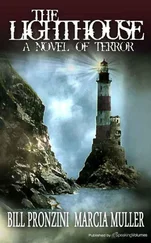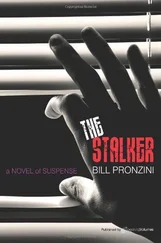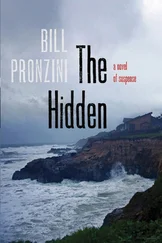Bill Pronzini - The Vanished
Здесь есть возможность читать онлайн «Bill Pronzini - The Vanished» весь текст электронной книги совершенно бесплатно (целиком полную версию без сокращений). В некоторых случаях можно слушать аудио, скачать через торрент в формате fb2 и присутствует краткое содержание. Жанр: Детектив, на английском языке. Описание произведения, (предисловие) а так же отзывы посетителей доступны на портале библиотеки ЛибКат.
- Название:The Vanished
- Автор:
- Жанр:
- Год:неизвестен
- ISBN:нет данных
- Рейтинг книги:3 / 5. Голосов: 1
-
Избранное:Добавить в избранное
- Отзывы:
-
Ваша оценка:
- 60
- 1
- 2
- 3
- 4
- 5
The Vanished: краткое содержание, описание и аннотация
Предлагаем к чтению аннотацию, описание, краткое содержание или предисловие (зависит от того, что написал сам автор книги «The Vanished»). Если вы не нашли необходимую информацию о книге — напишите в комментариях, мы постараемся отыскать её.
The Vanished — читать онлайн бесплатно полную книгу (весь текст) целиком
Ниже представлен текст книги, разбитый по страницам. Система сохранения места последней прочитанной страницы, позволяет с удобством читать онлайн бесплатно книгу «The Vanished», без необходимости каждый раз заново искать на чём Вы остановились. Поставьте закладку, и сможете в любой момент перейти на страницу, на которой закончили чтение.
Интервал:
Закладка:
I cut the call short then, to alleviate expenses as much as possible, and went in to shave for my visit to Kitzingen’s whoretown.
CHAPTER ELEVEN
MacVeagh was twenty minutes late arriving at the bar in the Bayerischer Hof, which was not particularly surprising; he had struck me as anything but the punctual type. I was on my second bottle of Scheuernstuhl, Kitzingen’s personal contribution to the brewer’s art; the only other paying customers were two elderly types playing chess and drinking schnapps under an ornate brass lamp in one corner.
I saw MacVeagh come in and raised a hand at him, and he came over to where I was sitting. He was in uniform, a fur-lined greatcoat thrown carelessly over one shoulder; by the three chevrons above the single arc on the sleeve of his blouse, I could see that he was an E-6-a staff sergeant. I had the thought that he had held the non-com rank for some time, and that he would continue to hold it until he retired or perhaps died from one ailment or another. He was not exactly a world beater, and an extra stripe or two would have no special value in the pursuit of his true life’s work.
He sat down beside me and I bought him a bottle of Scheuernstuhl and we made a little small talk about nothing much. When the beer was gone, we left the hotel. MacVeagh said, ‘We can walk to the restaurant I mentioned this afternoon-it’s only a couple of blocks- but we’ll have to take your car to the Am Pfuhl later on unless you want to shell out for a taxi. I hitched in.’
‘That’s no problem.’
We walked to Mainstockheimer Strasse, which paralleled the Main River to the north. There was no rain, but the rifts in the clouds had been sutured with thick black thread; the wind had picked up and it was considerably colder than it had been earlier. The dark, still water of the river appeared frigid, as if it were at the point of freezing solid. You could see the bright clear lights of the houses strung along the opposite shore, and to the east the lighted runways at Harvey Barracks-the Army Air installation which flanked Kitzingen in that direction.
The restaurant MacVeagh steered me to was called Die Vier Jahreszeiten-The Four Seasons-and it was located in an ornately façaded brick building facing toward the river. We managed a table in the crowded main hall, and ordered Wiener schnitzel and green salad and German rye bread and bottles of Scheuernstuhl. The food arrived in a couple of minutes-Teutonic efficiency-and I had to admit that MacVeagh had a valid appreciation of the local cuisine.
Over cigarettes and coffee he said, ‘Well, what do you think of Germany so far?’
‘I haven’t seen enough of it to form much of an opinion.’
‘It grows on you, gets into your blood. I been here eight years now, at Larson and Mannheim and Bad Kreuznach, and I wouldn’t go back to the States on a bet. They got good beer, better food, and the best pussy in the world. What more could you want?’
I could think of a couple of things, but I said, ‘Not much, I guess.’
‘You married, are you?’
‘No.’
‘Smart boy. I been through the mill twice. American women don’t know how to treat a man. But a German chick-well, Jesus, I was shacked up with this one the last time I was in Munich…’
So I listened to him tell about the last time he was in Munich, his eyes glowing, and maybe it was the truth and maybe it wasn’t; it sounded very good and very false at the same time, so that you had the feeling that even if it was true, he was touching only the very highest points and maybe embellishing those a little. I wondered what he would say if I told him about Cheryl and the way it had been that first time at her house; but then I thought I knew what he would say and I kept my mouth shut and let him talk until he was finished inflating his ego. He let me pay the check and we got out of there.
At the Bayerischer Hof, we picked up my rented Volkswagen and drove south, following the curve of the river, until we came to an old, dark section of the town, near the rail tracks. The sound of a train whistle, low and wistful, punctuated an indication from MacVeagh for a left-hand turn, and I saw by the street sign that we were now on the Am Pfuhl.
It was a short, narrow, twisting street with a considerable amount of pedestrian traffic. Neon bar signs cast surrealistic red and blue and green shadows over the rough brick buildings standing shoulder to shoulder on both sides of the street, and there were black alleyways and small iron balconies at the stories above the pavement. Enlisted servicemen walked in pairs and groups, but seldom alone.
In the second block MacVeagh pointed to a heavy rococo door set between two milky-white globes on tarnished brass arms; black lettering on the lighted globes read: DODGE CITY BAR. ‘That’s it,’ he said. ‘Some place, huh?’
‘Matt Dillon would be proud.’
We went another block, and Am Pfuhl ended at a well-lit thoroughfare. MacVeagh directed me to a spot under a streetlamp, for obvious reasons, and I parked there and locked the Volkswagen. We walked back to the Dodge City.
Inside, there was not much to differentiate it from its brother establishments in two dozen countries around the world. You went down three steps into a dark smoke-filled room with a long bar and tables and booths in the rear. There were red and green lamps on the bare walls, and candles in wine bottles on the tables. Behind the bar were three huge wine casks draped with imitation grapes on wilted vines, and a short, fat barkeeper sporting muttonchop whiskers and wearing a tattered red coat and a bow tie as wilted as the grape vines.
The place was about a quarter filled, but it was early yet and they would pack them in later on-you had that feeling. Bar girls in low-cut shiny dresses numbered fifteen or twenty, and there was a lot of laughter and a lot of sporadic singing in accompaniment to discordant German rock music emanating from a garishly lighted jukebox. I followed MacVeagh up to the bar, and we got some looks from three Flittchen painted like Barnum clowns sitting off on our right.
The barkeeper came down and nodded and said, ‘Ja, bitte?’
In German, MacVeagh ordered a couple of beers and then said that he wanted to ask him some questions about a friends of ours, a soldier. The barkeeper started to protest that he didn’t have time for talking, saw the way MacVeagh was looking at him, and closed his mouth. He opened two bottles of Scheuernstuhl and set them in front of us. Was ist es?’
MacVeagh asked him if he remembered the American soldier who had been drunk in there about three months ago-the one they had had to keep putting in a room in the back each time he passed out. The barkeeper grinned a little and touched his muttonchops and said that he remembered him very well, yes, and weren’t you one of the men who came to take him back to the Flakgelände? MacVeagh admitted that he was.
He said, ‘Did you talk to the soldier while he was drinking in here?’
‘Only to sell him another bottle of schnapps,’ the barkeeper answered, and shrugged. ‘He did not want conversation.’
‘Then he didn’t say where he had been before he came here?’
‘Not to me.’
‘Or why he was drinking as he was?’
‘No.’
‘Did he talk to anyone while he was here?’
‘No-ah well, perhaps to Sybille.’
‘Sybille?’
The barkeeper shrugged again. ‘Ein Flittchen,’ he said.
‘Is she here now?’
The guy let his eyes move slowly over the room, squinting against the pall of smoke. He shook his head.
‘Will she be in tonight?’
‘It is possible. One never knows with Sybille.’
I said slowly, in German, ‘Why do you think the soldier may have talked to her?’
Читать дальшеИнтервал:
Закладка:
Похожие книги на «The Vanished»
Представляем Вашему вниманию похожие книги на «The Vanished» списком для выбора. Мы отобрали схожую по названию и смыслу литературу в надежде предоставить читателям больше вариантов отыскать новые, интересные, ещё непрочитанные произведения.
Обсуждение, отзывы о книге «The Vanished» и просто собственные мнения читателей. Оставьте ваши комментарии, напишите, что Вы думаете о произведении, его смысле или главных героях. Укажите что конкретно понравилось, а что нет, и почему Вы так считаете.
